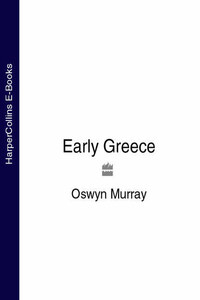for
J.A.H.M.
O.M.
A.E.M.
M.P.M.
R.J.M.
No justification is needed for a new history of the ancient world; modern scholarship and new discoveries have changed our picture in important ways, and it is time for the results to be made available to the general reader. But the Fontana History of the Ancient World attempts not only to present an up-to-date account. In the study of the distant past, the chief difficulties are the comparative lack of evidence and the special problems of interpreting it; this in turn makes it both possible and desirable for the more important evidence to be presented to the reader and discussed, so that he may see for himself the methods used in reconstructing the past, and judge for himself their success.
The series aims, therefore, to give an outline account of each period that it deals with and, at the same time, to present as much as possible of the evidence for that account. Selected documents with discussions of them are integrated into the narrative, and often form the basis of it; when interpretations are controversial the arguments are presented to the reader. In addition, each volume has a general survey of the types of evidence available for each period and ends with detailed suggestions for further reading. The series will, it is hoped, equip the reader to follow up his own interests and enthusiasms, having gained some understanding of the limits within which the historian must work.
Oswyn Murray
Fellow and Tutor in Ancient History,
Balliol College, Oxford
General Editor
The traditional spelling of Greek names follows Latin rather than Greek practice; recently some scholars and translators have tried with more or less consistency to render Greek names according to their original spelling. In the interests of clarity we have adopted a compromise: generally geographical places and names of extant authors appear in their conventional Latinized form, other names in Greek spelling; but where this would lead to confusion we have not hesitated to be inconsistent. Apart from variations in the endings of names, the main equivalences are that Latin C represents Greek K, and the diphthongs Latin ae represents Greek ai. Where the difference in spelling is substantial, both forms are given in the index.
THIS BOOK would have been very different if it had been written at the time of its conception, ten years ago. The difference is due not to myself, but to the work of the archaeologists whose publications I cite: in early Greek history no historian can be unaware of his debt to those who work in the field. If my approach is new, it is because I have tried to emphasize three aspects. Firstly, the role of concepts in history: man lives in his imagination, and his history is the history of ideas. Secondly, the unity of the eastern Mediterranean, and the importance of communication in fostering that unity. Thirdly, the significance of social customs for the understanding of all aspects of history. But it is no longer necessary to justify a book which spends as much space on the drinking habits and the sexual customs of the Greeks as on their political history; since Tolstoy, we have known that the breaking of the wave is the product of forces far out in the ocean of time.














